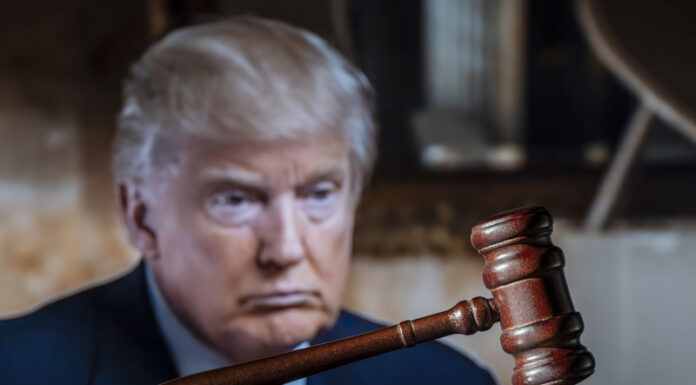President Donald Trump launched a scathing attack on Sunday, August 24, against New York Judge Arthur Engoron, calling the judge who oversaw his civil fraud trial “incompetent,” “crooked” and “corrupt” following a major appellate court victory that erased a $500 million penalty.
Trump’s verbal assault came after the New York Appellate Division threw out the massive civil fraud penalty on Thursday, ruling that the verdict was excessive and violated the Eighth Amendment. The five-member panel’s decision represented one of Trump’s biggest legal wins yet in the case brought by New York Attorney General Letitia James.
In a post on Truth Social, Trump indicated that the appellate court had removed Engoron but claimed the judge refused to acknowledge the ruling. “He’s a highly overturned, CROOKED Judge, who is retiring into a life of lawsuits, along with his Chief Clerk, soon!” Trump wrote, adding that Engoron was almost as corrupt as James.
The original case stemmed from James’ lawsuit accusing Trump of inflating the value of his assets to secure more favorable terms from lenders for his real estate business. After an 11-week bench trial, Engoron found Trump liable for committing a decade of business fraud by exaggerating his net worth to obtain better business deals.
Engoron had ordered Trump to pay $364 million in penalties, which with interest totaled approximately $500 million. The judge also temporarily banned Trump and his sons from leading New York-based companies for several years. The total penalty, combined with fines levied on other Trump Organization executives including Donald Jr. and Eric Trump, exceeded $527 million with interest.
The appellate court’s ruling was split on the merits of the lawsuit. Two judges agreed Trump was properly held liable for business fraud but found the fine excessive. Two other judges concluded the trial court was wrong to decide Trump committed fraud and said the case should be retried, though they joined the decision with great reluctance to allow appeals to proceed to the state’s highest court.
Justice David Friedman offered a particularly sharp dissent, arguing that James’ true aim was political rather than market protection. He stated that her real objective was not to safeguard market integrity but to pursue a political agenda, ultimately aiming to derail Trump’s political future and dismantle his real estate empire.
Friedman criticized James’ use of Section 63(12) of New York’s Executive Law, which gives the attorney general broad civil fraud powers. He characterized the use as unprecedented and political, giving James essentially limitless power to prosecute her political enemies. The justice indicated he would reverse the judgment and dismiss the complaint entirely.
The appellate panel upheld findings that Trump and his company were liable, affirming that James acted within her authority and that injunctive relief against the Trump Organization was appropriate. However, the court dismissed the financial penalty in its entirety while leaving a pathway for further appeals to the Court of Appeals.
During the original trial, Engoron found that Trump and his co-defendants engaged in frauds, including wrongly claiming that Trump’s penthouse was three times its actual size and valuing his Mar-a-Lago estate as a personal residence rather than a social club. The judge had written that the defendants’ complete lack of contrition bordered on pathological behavior.
James responded to the appellate ruling by stating her case has merit and announcing plans to appeal to the state’s highest court to reinstate the penalty. She noted that the court upheld the trial court’s ruling that Trump, his company, and two of his children were responsible for committing fraud, and sustained the injunction restricting their ability to operate businesses in New York.
Alina Habba, Trump’s former personal lawyer who assisted in his defense and was later appointed interim U.S. attorney for New Jersey, described the decision as a decisive win. She characterized the attorney general’s case as politically motivated, legally baseless, and grossly excessive.
The appellate court took an unusually long time to rule, weighing Trump’s appeal for nearly 11 months after oral arguments last fall. Normally, appeals are decided within weeks or a few months. At the September hearing, several appellate judges seemed open to Trump’s points, raising questions about both the size of the judgment and how the fraud statute was applied.








